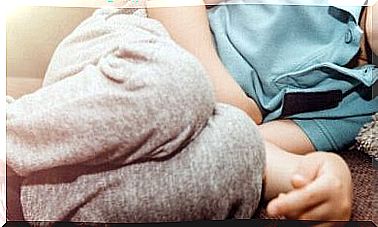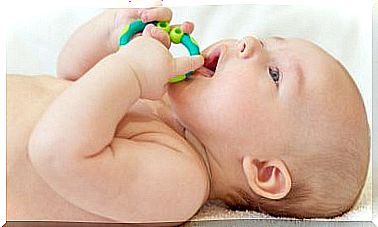Humorous Sense: Babies Develop It From Your Parents

Humorous sense is something we learn from our parents. We learn by copying everything from our parents and by observing their reactions in different situations.
This process begins at 6 months of age, when babies are aware of all the parents’ emotional reactions – even laughter and sense of humor .
If the parents of a 6-month-old child show indifference in response to an event, then the child will most likely do the same. But if parents laugh at something that happens, then babies do the same thing and they repeat the same behavior.
A study published by experts from the British Psychological Society (BPS) found that a baby is not yet able to decide if something is fun or not when they are 6 months old. Therefore, they look for their parents’ reaction and copy the most interesting one.
The development of humorous sense
To develop this experiment, the team of experts, which included Gina Mireault from Johnson State College and John Sparrow from the University of New Hampshire, selected babies aged 6 to 12 months.
All children participated in the study with their parents; the researchers showed them interesting and silly scenes that provoked laughter in the parents.
The babies observed the comic scenes without reacting, and when they heard and saw their parents laughing, they immediately turned around to watch them.
When they realized that their parents were laughing, the babies also started laughing.

According to the researchers, this is how humorous sense develops. Babies who are between 6 and 12 months old looked for their parents’ reaction. This is called “social reference.”
The experts discovered that at 6 months of age, babies’ reactions in a way depend on the reactions of their parents, especially when they laugh. This was not the case when the parents were expressionless.
Babies who were over a year old had already manifested their own sense of humor, which determined what they thought was funny and not funny.
These children no longer searched for their parents as a reference. They looked intently at the funny scenes and started laughing at themselves.
The researchers concluded that a sense of humor is not inherited but learned. This means that laughing babies are not born that way. The same can be said about babies who have a bad temper.
In fact, parents have a lot to do with this, for they are their child’s reference when it comes to expressing emotions.
Laughter is important for your child’s upbringing
It seems that sense of humor can be a junk topic for many, but it is not. On the contrary, it is a very interesting and serious topic to understand the development of the infant, and in this case to understand social references.
According to the study’s authors, parents become a source of emotional information for babies, and it is an extraordinary tool for understanding children’s emotional and social development.

A few questions arise from all this information: How can it be that siblings are so different? Why can one have such a good sense of humor while the other is so serious all day?
According to experts, the answer is that a good sense of humor is not hereditary, but learned. But temperament is innate and this limits our ability to develop what has been learned, depending on other factors such as personality, self-esteem or character.
Doctors claim that there are many benefits to living life with a good sense of humor. It helps to attract positive situations and people. It also helps children develop empathy so they can relate better to other children.
Humorous sense of humor and laughter also help increase a child’s self-confidence. It also promotes intelligence and helps them overcome unfavorable situations faster.
So do not forget to have a sense of humor in front of your child so that they can copy the best from you. Remember, you are their emotional guide during the first months of their lives.









